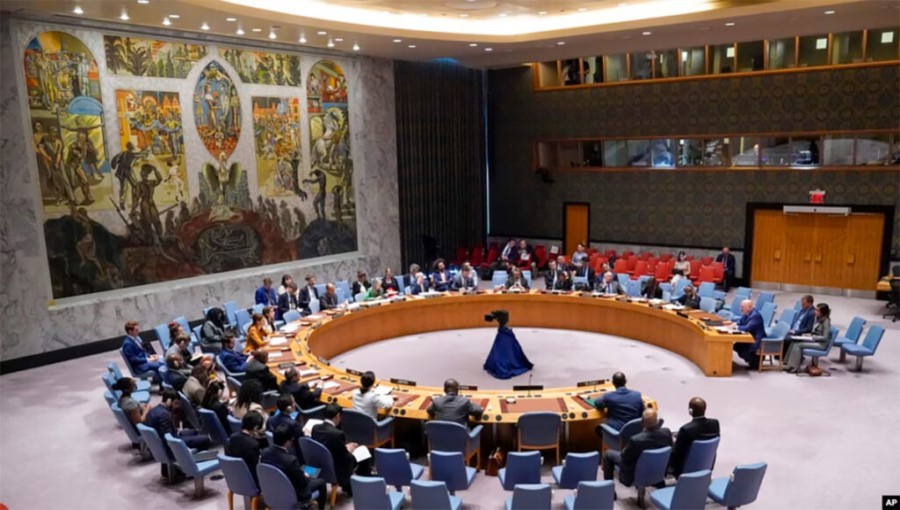United Nations, July 31— The United Nations Security Council convened an emergency meeting on Wednesday to address concerns over escalating tensions in the Middle East following the assassination of Ismail Haniya, the political head of Hamas. The meeting, organized in response to growing fears of a large-scale conflict, highlighted deep divisions among member states.
Representatives from China, Russia, and Algeria strongly condemned the killing of Haniya, stressing the worsening situation in Gaza due to the failure to reach a cease-fire agreement. China's permanent representative emphasized that the region's instability could escalate without immediate diplomatic intervention.
Conversely, representatives from the United States, Britain, France, and Israel placed blame on Iran for contributing to instability in the Middle East. They accused Tehran of supporting proxy groups and exacerbating regional tensions, calling for increased international pressure on Iran.
In response to these allegations, Iran's representative defended the nation's actions, asserting that while they exercise patience, Iran reserves the right to respond to any attacks. The diplomat refuted claims of supporting terrorism, arguing that Iran's actions are defensive in nature.
The meeting concluded without a resolution, underscoring the complexity of the geopolitical landscape in the region and the challenges in reaching a consensus among global powers. The UN and its member states continue to monitor the situation closely, hoping to prevent further escalation and promote peace in the Middle East.





























Comment: